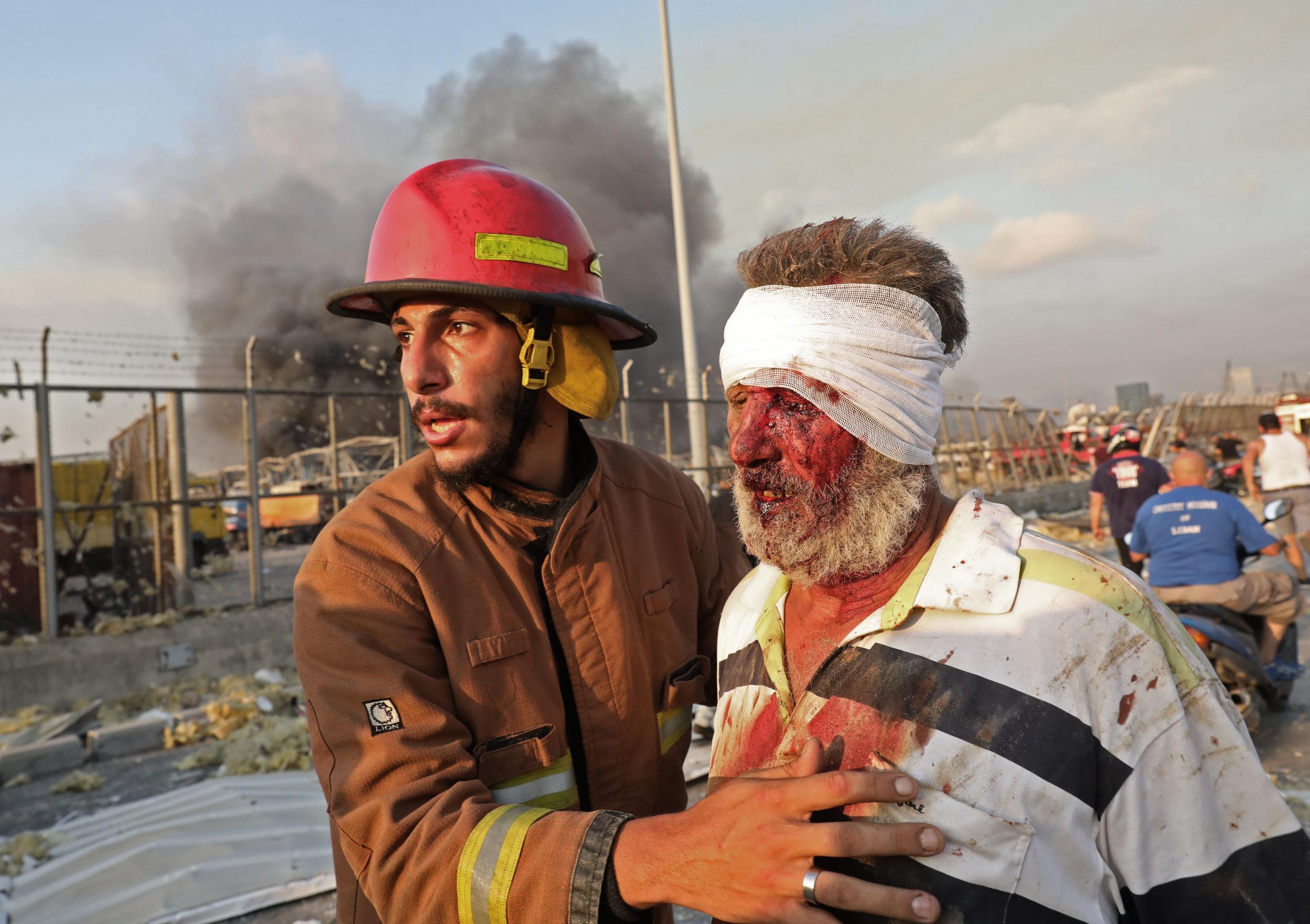‘We could have saved more lives’: How Beirut firefighters were left to tackle port explosions blind
Exclusive: Fire department officials say first crew to arrive were ‘unusually’ not given keys or even location of burning warehouse, delaying rescue efforts and costing lives

Your support helps us to tell the story
From reproductive rights to climate change to Big Tech, The Independent is on the ground when the story is developing. Whether it's investigating the financials of Elon Musk's pro-Trump PAC or producing our latest documentary, 'The A Word', which shines a light on the American women fighting for reproductive rights, we know how important it is to parse out the facts from the messaging.
At such a critical moment in US history, we need reporters on the ground. Your donation allows us to keep sending journalists to speak to both sides of the story.
The Independent is trusted by Americans across the entire political spectrum. And unlike many other quality news outlets, we choose not to lock Americans out of our reporting and analysis with paywalls. We believe quality journalism should be available to everyone, paid for by those who can afford it.
Your support makes all the difference.The firefighters who likely died in Beirut’s port explosions were not provided keys to the burning warehouse at the epicentre of the blast or shown its location, costing them precious minutes that could have saved lives, officials revealed on Monday.
Speaking to The Independent, fire department officials said the “unusual” lack of information during last Tuesday’s emergency call delayed the already ill-prepared crew, meaning they were not able to contain an initial smaller fire that likely detonated a stockpile of 2,700 tonnes of ammonium nitrate.
The firefighters were unable to evacuate the area themselves in time, or warn the rest of the city. All of the ten emergency responders, including a female paramedic, are believed to have died in the blast which killed over 150 people and injured thousands more. Rescuers are still searching the rubble for all the bodies of those first called to the scene.
It was the police who first informed the fire service of a blaze at the port at 5.55pm, according to the member of the fire department operations room who took the initial call.
The employee, who asked to remain anonymous, told The Independent they were at no point warned about the vast stockpile of explosive ammonium nitrate, stored in the hanger that was on fire.
In fact, they were given no information at all. When the team arrived at the scene they were not met by a port crew as would be usual, nor handed keys to the warehouse or even told which building was on fire.
Fadi Mazboudi, a fire department chief, said that crucial lack of information – a clear break from normal protocol – delayed the team by several critical minutes as they were forced to hunt for the burning warehouse and try to break into it.
“If they had the hangar door open already, if they knew where they were going, they might have had moments to control the fire. So you would not have had the first initial explosion that triggered the larger blast,” Mazboudi said.
“If they had known what materials were inside they would have been able to report back about how risky the situation was,” he added. The might have been able to save themselves.
“Each minute counts in our work. It might have saved lives.”
Mazboudi said it was likely the firefighters never came to know about the ammonium nitrate, and only realised the severity of the fire in the last few seconds before the blast hit.
He said firefighters Elia Khizami and Charbel Karam called their superiors to request urgent backup since they only had three tonnes of water, which was not enough for such a large blaze.
When they hung up – at around 6.08pm – the explosion detonated.
“Lives could have been saved if we had more information, if someone had met [the team] to explain,” said the distraught employee who took the original call.
“Everyone at the port should resign and be investigated,” he said.
The Independent spoke to one port official before he was detained. He declined to comment. Other firefighters The Independent spoke to corroborated this account.
The fresh information about those crucial few minutes comes as a Lebanese judge began questioning the heads of the country’s security agencies, and as a third cabinet minister resigned in protest at the government’s handling of the crisis.
The cabinet was scheduled to convene later on Monday, amid speculation that the government could resign en masse. If seven out of 20 cabinet ministers were to resign, it would mean the collapse of cabinet, consigning it to caretaker status until a new one is formed. At least nine members of parliament have also resigned
The massive blast on Tuesday has brought a new wave of public outrage at the government and Lebanon’s long-entrenched ruling class.
Protests were planned outside the government headquarters to coincide with the cabinet meeting, following large demonstrations over the weekend that saw clashes with security forces firing tear gas at protesters.
The ammonium nitrate stockpile that fuelled the huge second explosion had been poorly stored at the port since 2013, with few safeguards despite numerous warnings of the danger.
The state security agency had compiled a report about it and informed the president and prime minister as recently as 20 July.
About 20 people have been detained over the blast, including the head of Lebanon’s customs department and his predecessor, as well as the head of the port. Dozens of people have been questioned, including two former cabinet ministers, according to government officials.
Join our commenting forum
Join thought-provoking conversations, follow other Independent readers and see their replies
Comments